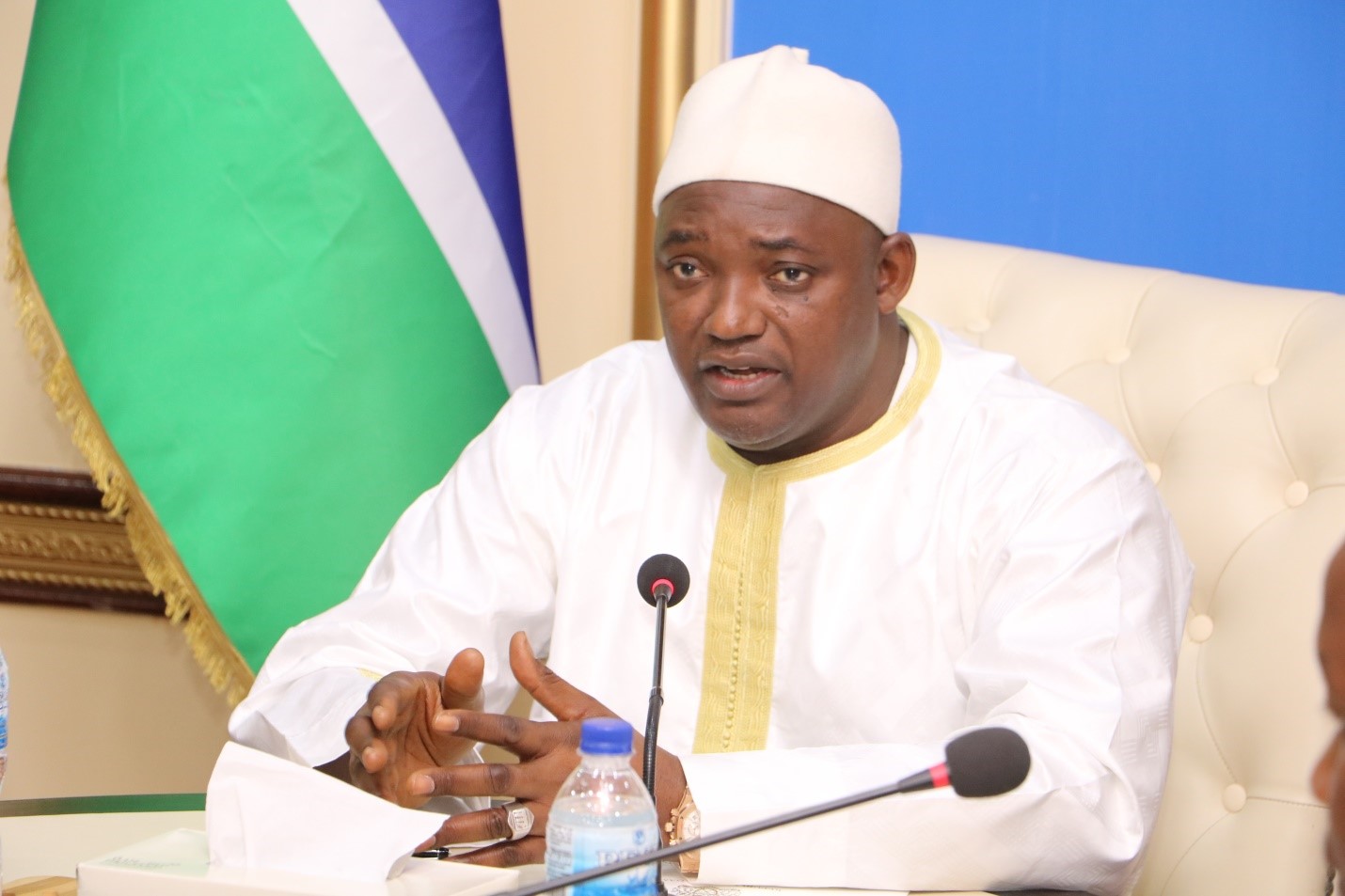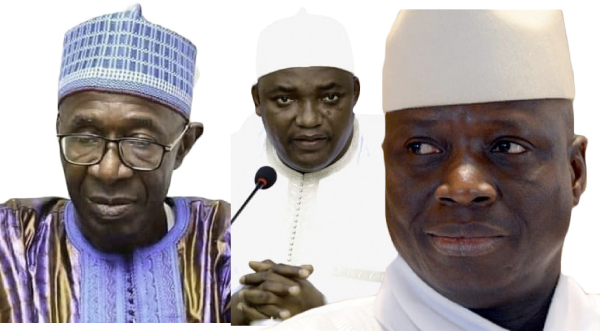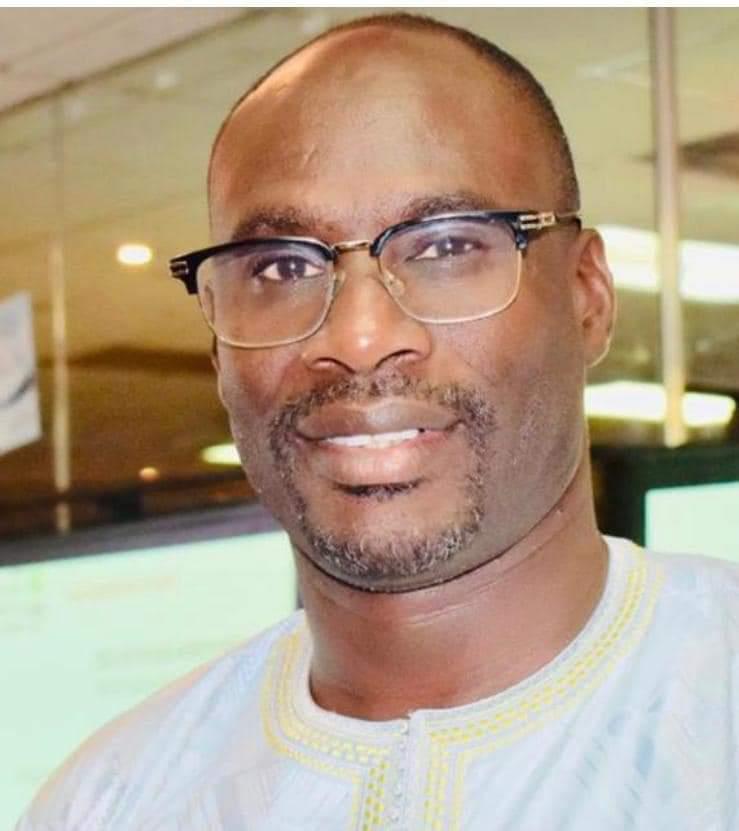President Adama Barraw Tuesday extended The Gambia’s state of public emergency for 21 days in accordance with Section 34(2) of the Constitution.
The move followed the government’s request for an extension tabled on Friday, May 16.
However, the National Assembly resolution failed to carry the votes required to extend the state of public emergency, with 23 members of the house voting in favour, while 25 voted against it.
In a nationwide address, President Barrow said: “I have invoked the powers conferred on me by Section 34(6) of the 1997 Constitution to further declare by proclamation published in the gazette, effective today, 19th May 2020 that a state of public emergency continues to exist in the whole of The Gambia.
“Since the National Assembly is no longer in session, this state of public emergency shall last for 21 days in accordance with Section 34(2) of the Constitution.”
President Barrow said no one doubted the existence of the Coronavirus (COVID-19) pandemic and the destruction it was causing to life and economies around the world.
He said on 3 April, 2020, in response to the declaration on the pandemic by the WHO, the National Assembly passed a resolution that extended for 45 days the state of public emergency, which he declared on 26 March, 2020, in accordance with Section 34(1)(a) of the 1997 Constitution.
According to him, at the time, only two COVID-19 cases were confirmed in The Gambia, whereas 171 other countries were reporting alarming levels of infections.
“As at the date of my declaration, according to the WHO, the virus had killed 20,834 people globally,” he said.
He added: “Today, the number has increased to over 300, 000. This makes it ever more necessary for stricter measures to be taken.”
He pointed out that to respond squarely to the situation, his government adopted a number of measures, through emergency regulations, pursuant to the Emergency Powers Act.
“The objective for this line of action was to strengthen our efforts to break the chain of transmission of the virus in the country. Regulations were also laid down to ease the expected hardship that would arise from the measures and regulations
“These included the Essential Commodities Emergency Powers Regulations, which seeks to protect the public from price hikes of essential commodities such as rice, sugar, flour and cooking oil.
“To ensure adequate food supplies in the country, the export of essential commodities during the state of public emergency was banned,” he declared.
He further announced other regulations including restrictions on public transportation, open markets and the closure of non-essential public places were part of the efforts to break the chain of transmission of the virus in our country.”
President Barrow also said his government was very much aware that strict measures imposed during the state of public emergency would affect lives in many ways, but added that handling COVID-19 was a matter of survival and saving lives first, and not about individual interests.
“As at today, 19th May 2020, The Gambia has 24 officially confirmed cases of coronavirus infections, and one reported death. Our immediate neighbour, Senegal, has over 2,400 cases, and 25 reported deaths. Globally, over 4.5 million people have now been infected, with over 300,000 reported deaths.
“Based on their professional opinion, our health experts have predicted that if the right measures are not taken to successfully break the chain of transmission in the country, over 180,000 people will be infected in The Gambia. This will result in an estimated death toll of over 9,000 people,” he said.
He further said, guided by these alarming figures and the fact that the state of public emergency extended by the National Assembly expired 18 May, 2020, his government requested the National Assembly on 16th May, 2020, to extend their resolution by another 45 days.
According to him, the objective for this is “to maintain, if not redouble, our efforts to combat CUVID-19, which continues to pose a clear danger to our small country”.
President Barrow stressed that “Coronavirus knows no boundaries, and it has no respect for any person and it attacks, infects and kills without regard to status, ethnicity, religion, political or any other type of association”.
“Without a state of public emergency, there will not be any emergency regulations. Without the emergency regulations, we cannot effectively fight against this deadly virus that threatens our lives and livelihoods.
“This is the time that we must all come together as a nation, and put the interest of the country first and high above politics. This is about all of us as a people bound by a common destiny. It is a period to show our political maturity as a democratic society capable of putting all narrow interests aside for the national interest,” President Barrow pointed out.
He said the 1997 Constitution had empowered the National Assembly, and provided it with the responsibility under these circumstances to support the government’s efforts to combat COVID-19 under Section 34(5) of the Constitution.
“With regret, however, our August Assembly has failed to act on its powers. As a result, my Government and I owe it to the people of this country to protect them from this grave danger. It is my duty to act, and it amounts to a deadly abdication of responsibility if I fail to take the right action in the face of an obvious threat to the lives of our people,” he said.
He also re-issued the emergency regulations that were in force before the state of public emergency expired. They include the regulations declared on 26 March, 2020, and extended by the National Assembly on 3 April, 2020.
He announced that these re-issued emergency regulations should also continue to be in force in line with the proclamation that he had made Tuesday.
“I call on the general public to appreciate that this is in the best interest of the whole nation, and I pray that the Almighty God continues to bless and strengthen us as a united people,” he declared





